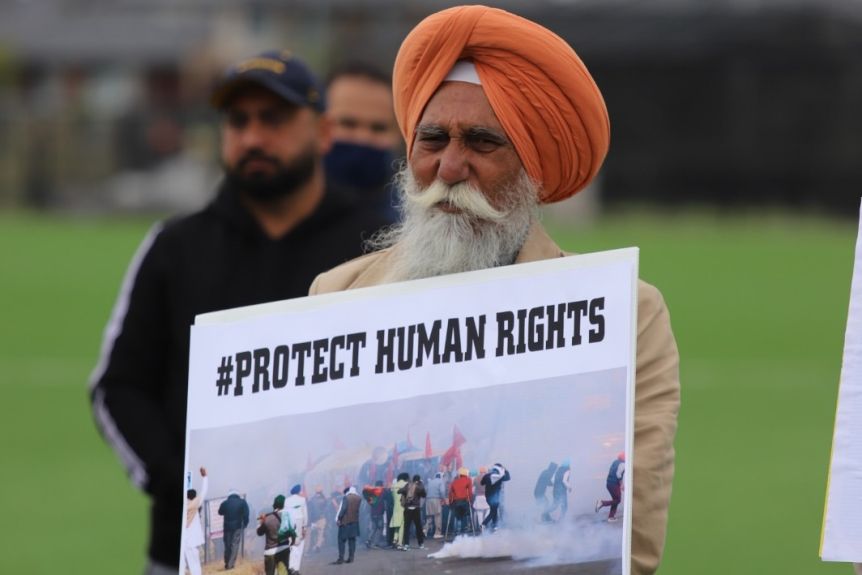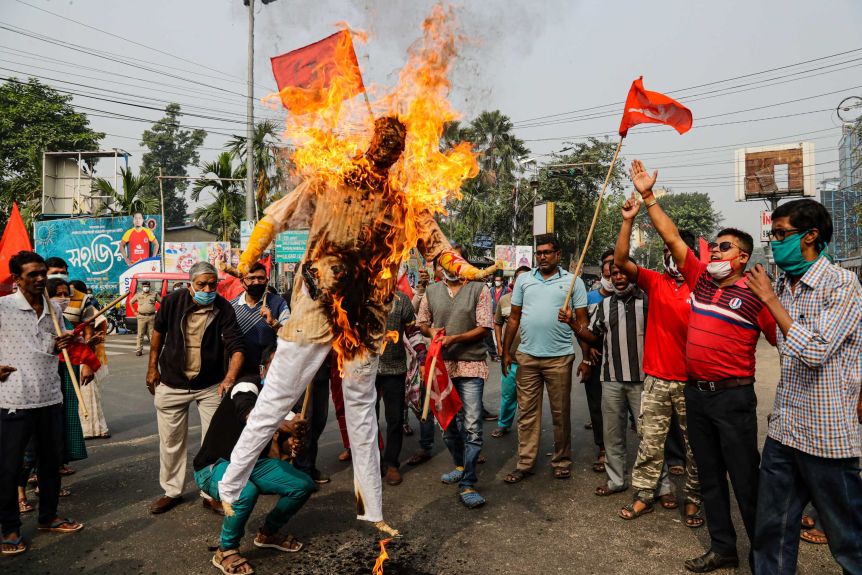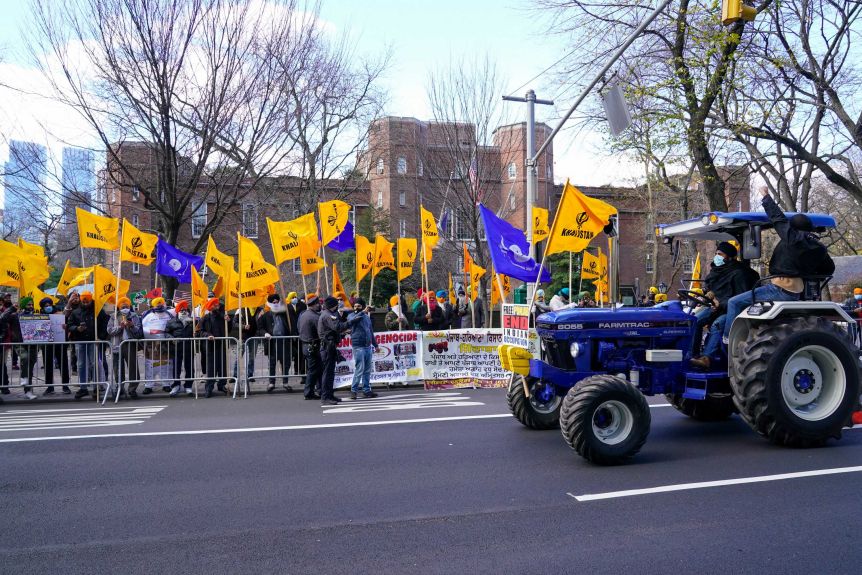It’s been two weeks since hundreds of thousands of farmers and their supporters descended on the Indian capital, blockading major arterial roads, in an effort to push back on government reforms.
Despite being initially repelled with police batons and water cannon, the farmers, who are from the food bowl states of Punjab and Haryana, have established a foothold and are showing no signs of leaving.
The protest has sparked one of the biggest campaigns to date against Prime Minister Narendra Modi and his nationalist Bharatiya Janata Party (BJP) — spreading as far as Sydney, Toronto and London.
Indian media have begun asking whether it’s Mr Modi’s “Thatcher moment” — drawing parallels with the late UK prime minister’s decision to stare down striking trade unions and push on with her deregulation agenda.
So, why are they striking? How are Australians responding? And why does Canada care?

What is Modi trying to do?
The Government is seeking to wind back decades-old, socialist-inspired policies, instead replacing them with a market-driven economic model.
The reforms would remove the middleman and allow farmers to sell directly to supermarket chains and food distribution companies.
The Government argues the reforms will give farmers the choice of what they sell, who they sell to, and for how much

“The new agricultural laws have been brought in for benefit of the farmers. We will see and experience benefits of these new laws in the coming days,” Mr Modi said in late November.
Many economists have also argued the agriculture industry is outdated.
“Because there are such a limited number of buyers, they tend to wield an influence over prices,” Delhi-based economist Radhika Pandey said.
“The intent is to … give flexibility to farmers.
“There is a greater potential for competition between buyers and sellers. There will be more buyers.”
So why are Indian farmers angry?
Simply put, farmers believe that the reforms will leave them at the mercy of big business.

More than 40 per cent of India’s entire population relies on agriculture for their livelihoods, but the industry is rife with poverty.
Agriculture expert Devinder Sharma said that’s because most crops are already sold at market value.
“We have deliberately kept agriculture impoverished,” Mr Sharma said.
“We have denied the farmers their rightful price for decades, and so the farmers’ anger has been building up over the years.”
Many farmers in India also work relatively small plots of land, when compared to Australia or the United States.
Small landowners fear they will be bought out by big corporations including Adani, which has caused controversy in Australia over its Carmichael coal mine.
Protest leaders this week said they would boycott services and facilities owned by Adani and another Indian conglomerate, Reliance.
“In the long term, [Mr Modi is] going to take our lands away,” said Amar Singh, president of the Sikh charity Turbans 4 Australia.
“Because of this land people are able to send their kids overseas to study.
“The youth unemployment in India is astronomical. What’s going to happen when the family farm is taken away?”
Farming in Punjab is more than a source of income.
“In Punjab, the only culture is agriculture,” Mr Sharma said.
Farmers currently enjoy minimum prices for wheat and rice, crops that are predominantly grown in Punjab and Haryana.
They fear the floor prices for wheat and rice will be scrapped, something the Government denies.
Many are now pushing for stronger price controls.
How are Indians in Australia responding?
Social media and WhatsApp have seen an outpouring of support for the farmers in the Indian diaspora around the world, from London to New York.

In the past two weeks protests have been held across Australia in support of the strikes.
Turbans 4 Australia is one of a coalition of Indian diaspora groups involved in organising Australian protests.
“We are concerned about the human rights abuse of peaceful protesters being showered with water cannons and tear gas cannons,” Mr Singh told the ABC.
Post Disclaimer
Disclaimer: Why Indian farmers are protesting against Prime Minister Narendra Modi's farming reforms By Max Walden - Views expressed by writers in this section are their own and do not necessarily reflect Latheefarook.com point-of-view





